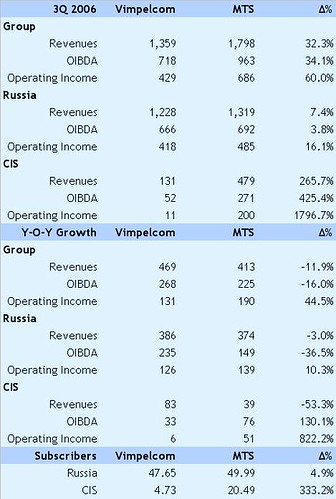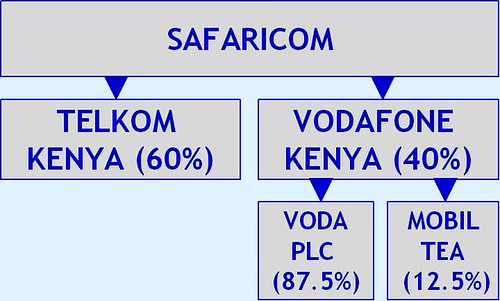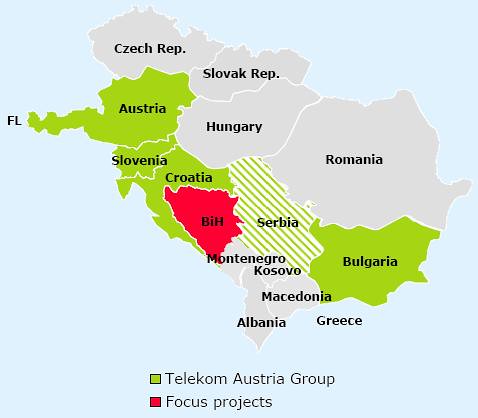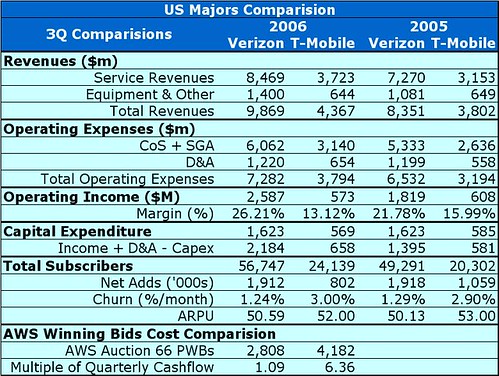Over the weekend, I was catching up on my missed event list and was fascinated with the
Qualcomm (QCOM) London Investor Roadshow from Nov 11th. I was horrified when the CFO, Bill Keitel, mentioned that QCOM legal bill during FY06 had increased by US$100m and was expected to increase by another US$100m during FY07. It is scandalous that the biggest beneficiary of 3G technology seems to be the legal profession.
The reason that QCOM legal bill seems to be completely out of control is that QCOM have resorted to law to defend itself against three big beasts trying to dismantle its empire. The empire itself is worth a lot of money: Friday’s closing of US$37.58 gives a market capitalisation of US$62.1bn. Net cash of US$9.9bn gives an Enterprise Value of US$52.2bn. QCOM generated in 2006 Free Cash Flow US$2.6m so the yield is 5% which is actually quite low for a company in a pivotal position in a high growth industry. To me, the stock market is saying they think QCOM’s empire is in decline.
So who is fighting QCOM and why?
Group 1: Nokia (NOK), Ericsson (ERIC) and Texas Instruments (TXN)
These are the key people complaining to the EU that QCOM is using anti-competitive behaviour. I know that it is difficult to believe that the World #1 Mobile Handset Maker, the World #1 Mobile Infrastructure Maker and the world #1 Mobile Chip Maker are whinging to the EU and the fact they are involving politicians seems to me to indicate just how poor their negotiating position is. However, this is nothing new and QCOM was only allowed a seat at the 3G table in the first place after the US government got involved with its EU counterparts in the debate. Realistically, once the negotiating has got to the level of irrational politicians – any outcome is possible and associated with any uncertainty is a discount in valuation for QCOM.
Two facts stood out from the presentation: NOK royalty payments to QCOM have increased by 900% since 2001 and sales of WCDMA handsets by value (62%) have overtaken GSM handsets (38%) in the June ’06 quarter.
In 2001, NOKs Mobile Phone Division had a turnover of €23,158m and Operating Profit of €4,521. In 2005, NOK divisions relating to the sale of Mobile Phones (Mobile Phones, Multimedia and Enterprise) had a turnover of €27,653m and an Operating Profit of €4,176m. Meanwhile, over in QCOM land over the same period revenues have grown from US$651m to US$7.526m and Earnings before Tax have grown from US$234m to US$3,156m. So, in the five year period since 3G was introduced, NOKs handset profits have fallen by €345m, whilst QCOMs profits have increased by US$2,922m. You can see why NOK would try and renegotiate the 5% royalty rate. The fear factor for NOK is that one day soon all phones sold will contain CDMA technology and therefore they will be paying 5% of revenue for every phone sold over to QCOM.
As a chip maker, TXN is a completely different story and I can only think that their complaint is QCOM leveraging its royalties to give them an unfair advantage in chip pricing. However, I’m struggling to see this in terms of market share: it looks from some TXN investor slides that they have greater than 50% market share in the WCDMA market. In terms of overall wireless market, TXN figures show they had an increasing 18% share whereas QCOM had a declining 14% share.
However, there are two recent wireless chip events which will worry TXN. The first is the design win by QCOM at Motorola (MOT). MOT has traditionally used Freescale (FSL) as their chip manufacturer, which is hardly surprising given that FSL used to be a division within MOT. QCOM will have to work hard to gain a large share of the MOT business, but the door of the MOT building is ajar. Second the demise of Siemens Mobile will cause some turmoil in the GSM chip market, not least for Infineon which was the Siemens chip manufacturer. In fact, if I was a major player in the GSM equipment market, I’d be extremely worried about a major patent holder, Siemens Mobile now part of BenQ, will be looking for a way to earn a return on a loss making investment. The experience of Interdigital with NOK seems to show that litigation has the potential to provide a decent return.
The other factor at play here is the trend towards single chip solutions which requires a lot of innovation, multi-skilled engineering teams and deep patent portfolios to be successful. Both TI and QCOM seem to have detailed plans to make the transition – I’m not so sure about the rest of the industry, but this is through personal ignorance rather than a statement of fact.
All of these factors seem to spell to me that the next step is consolidation within the wireless chip industry. Therefore, I feel TXN will be focussed on more pressing matters than litigation and probably have added their name to the complaint to lend emotional support to their #1 customer NOK. After all, the chance of EU politicians giving a sympathetic ear to a US multi-national is next to zero.
On the infrastructure side, I suspect Ericsson (ERIC) is far more concerned about the rise of the Chinese vendors, especially Huawei. The QCOM business model of licensing patents to all and sundry actually levels the playing field and I think ERIC will want to retain its competitive advantage. In addition to the infrastructure business, ERIC has a fabless chip business and of course retains part ownership of the SonyEricsson mobile phone venture, so ERIC will have the same handset concerns as NOK and chip concerns as TXN.
Therefore, it seems that the stakes are really high in this round of WCDMA negotiations and the positions really boil down to:
• NOK, ERIC and TXN want lower royalties and to keep their competitive advantage against smaller industry players; and
• QCOM want to keep the status quo.
There is plenty of middle ground for a settlement, but I suspect time will pass and a lot noise will created before pen is put to paper on any sort of settlement agreements. Meanwhile the shareholders are hurt as valuations reflect uncertainly and the industry is hurt as profits move out to the legal profession.
Group 2: Broadcom (BRCM)
Although, BRCM is one of the parties crying foul to the EU compliant, it is the litigation in the US courts which is interest. The general impression I got from the call is that the BRCM proceedings are a bit of a distraction from the main event which has next to zero chance of success. QCOM also mentioned that BRCM had been playing foul and had actually stole secrets from QCOM and hence the QCOM litigation against BRCM in January.
I just see the whole chapter as a classic example of an aggressive company trying to enter a market. After all, Silicon companies seem to be more addicted to lawyers than to sand.
Group 3: The Wimax Gang
The WIMAX gang are basically trying to muscle the wireless market away from the current CDMA world and into a not-so-brave-but-highly-lucrative new future. Personally, I think this fight is almost over with CDMA emerging a champion and the WIMAX crowd will probably retreat to some small niche market like backhaul. Given the size of the wireless market and potential for future growth, it is hardly surprising that Intel and the rest of the gang would make a play for the market.
QCOM and the 3GPP/3GPP2 standards bodies have actually put up a really good fight in the technological capacity game. There is now so much confusion and vapourware in the press that no-one can be absolutely certain whose system offers the most bang for bucks.
There is also the myth that Wimax royalties will be low or very close to zero. I actually take the QCOM party line here and believe this is absolute nonsense. QCOM estimated that the WIMAX key patent pool contains 1,550 patents owned by 330 companies. Even if we allow for outrageous exaggeration, we are still left with a large number of companies to keep in check. It will only take one to break ranks and litigate for the whole licensing pack of cards to collapse. QCOM use the example of a bankrupt company taking on the big boys, like the infamous NTP taking on RIM. This is obviously the politically correct version of future events, because QCOM actually claim to hold a number of key WIMAX patents and I have no doubt that QCOM will litigate at a time and place of their choosing. I suspect a part of the increased legal bill at QCOM is being spent prepared litigation against the WIMAX gang.
There is also a general consensus that electronics only play a small part in the overall price equation compared to spectrum acquisition, site acquisition and operating costs. Therefore, it was always vitally important for the WIMAX gang to convince operators to move to their technology. I can only think of one major operator, Sprint Nextel, who has been conned, sorry convinced. Sprint are in such disarray that frankly I wouldn’t be surprised at anything they do and I seriously doubt whether the executive decision makers will be around at the time (if ever) the WIMAX service reaches profitability. If the WIMAX don’t convince anyone else soon, they may as well pack up and go home.
While we are examining the lack of threat of WIMAX to the QCOM business model, we should also examine the frequently heard “CDMA is dying” and will be replaced in the long run by GSM/WCDMA, obviously for the GSM-only crew this is great story to spread.
The basic problem for QCOM is that it is a complete truism that GSM has completely trounced CDMA and TDMA before it as a technology. This is manifesting itself in the economies of scale which are bringing cheaper handsets to key low cost markets. Vivo has struggled so much in Brasil that it is now building a GSM overlay market and seemingly moving away from CDMA. In India, there is a lot of public pressure from the CDMA operators (Reliance and Tata) to lower the cost of CDMA handsets to GSM levels. In China, China Mobile is showing far higher growth than China Unicom, the CDMA operator. Nobody can doubt these facts and it is really vital for QCOM to get the costs of handsets down so that the playing field is balanced. I see QCOM fighting back with its single chip solutions, but whether it is enough will be open to question, after all by the time the single chip solution is released the GSM market will have moved on. The real damage here is that NOK-et-all use the argument GSM has won because of the level of QCOM royalties, whereas the truth may be something to do with economies of scale.
I also feel that with the future deployment of 3G technology in emerging markets that some of these economies of scale questions will be answered. I take the opposite position to the cynics who believe that emerging markets will remain voice and text markets, I think that ultimately 3G technologies will spread and the use in the emerging world may actually be heavier than in the developed world because of the lack of fixed-line infrastructure in a lot of these countries.
In we look at the world’s biggest cellular markets in terms of value rather than volume the situation is rather different. In the USA, Verizon Wireless is the top performer and in Japan, KDDI is the top performer, both of whom use QCOM CDMA technology. In Western Europe CDMA has effectively historically been barred from the market by politicians. Again, we can argue what is the real root cause of this success and I have a lot of sympathy with the conclusion that, for instance, Verizon Wireless because of its management strength would be successful whatever technology they used.
I also think that QCOM will never allow CDMA to die and be replaced by WCDMA in the long run. This is because it needs a technology which provides a test bed for its innovation without having to get the technology approved by a hostile committee. Also, I think Verizon Wireless and KDDI will be more than grateful of the opportunity to differentiate its service, something that the European operators would die for.
In short, I don’t believe that WIMAX poses a short, medium or long term threat to QCOM. I also don’t believe that CDMA will die, although I agree that GSM will enjoy economies of scale advantages for the foreseeable future in emerging economies.
As well as building up legal billable hours, QCOM is busy moving ahead and spreading itself into two key new markets.
MobileTV
I am personally extremely excited about the size of the MobileTV opportunity. In the long run, I see almost everyone, whether on a mobile or some other device, having and watching mobile TV. I think QCOM is playing it extremely smart in designing its own air interface, MediaFlo, securing spectrum and deploying a network. The MediaFlo network build-out was named as the determining factor in the losses of US$133m in the Strategic Investments segment. QCOM already has signed up the key anchor tenant for this network in Verizon Wireless and I predict a lot more regional operators will sign up when the economics are proven in the major cities.
Use of the Strategic Investments division to seed a market with new technology is nothing new to QCOM and to me gives an indication of the size and commitment to specific technologies. It is also a strategic advantage, because you would never see NOK or ERIC taking this approach. For sure they might make a few loans and take a minority position, but securing spectrum and taking a 100% risk is not in their play book.
Qualcomm seem to taking a similar approach in Japan, however this time they are sharing the risk with KDDI which makes sense. I’m also going to predict that QCOM will take a big risk in the UK and take the same approach as in the USA. I’m not sure whether they will bid on the L-Band alone or with BSkyB or in a remote scenario a joint QCOM/BSkyB/Vodafone. However, I’m sure they finally see the opportunity of building a decent sized European business and more importantly beach-head to fortress Europe.
I also think QCOM are being really smart in developing a multi-mode chip for all the competing MobileTV standards. If QCOM can build this at the same price as single mode (DVB-H, DAB) chips then it will prove that supporting multiple standards is not as big an overhead as some people make it. It also de-risks the decision to put MediaFlo support in handsets for the manufacturers. Most ingeniously, it makes the decision of air interface purely on the performance of the air interface. All I can say is that QCOM must be confident of MediaFlo outperforming DVB-H.
Operating Platforms
I’m not sure to how describe the BREW and uiONE software platforms, but they seem to gaining traction, of note is the recent wins at o2 and TIM, these are big wins. It is apparent that QCOM is taking a radically different approach with supporting operators to NOK-et-all - this is a huge strength of QCOM and the benefits should be strong in the long run. Successfully working with Vodafone to launch integrated circuits for PCs and providing all the assistance to design an extremely cheap Vodafone branded 3G phone. This has been done at a time when tensions between the operators and traditional handset manufacturers are high and more or less guarantee a willing ear for any new technology proposed by QCOM to the operators. I suspect that QCOM is trying to squeeze the value chain into Intellectual Property Owner, Chip Maker and Software Provider ie Qualcomm, Device Assembler ie Huawei or whoever and Service Provider ie O2, Vodafone-et-all.
Conclusion
In the long run that the company with largest amount of brain power will win the day and there can be doubt that some of the biggest brains and innovators in the cellular industry reside at the QCOM headquarters. It is for this reason that I predict that QCOM will ultimately prevail and claim more and more of the wireless value chain and profits. However, I also believe that the general growth in wireless will allow plenty of profits to keep the NOK, ERIC and TXN shareholders happy if not ecstatic. This outcome is far from certain and a very risky call - in fact far too risky for me to recommend to anyone purchasing QCOM shares, let alone NOK, ERIC or TXN. What is certain is that the big winners in the short term will be the patent lawyers and political lobbyists, however I don’t know any publicly quoted one’s to recommend.











